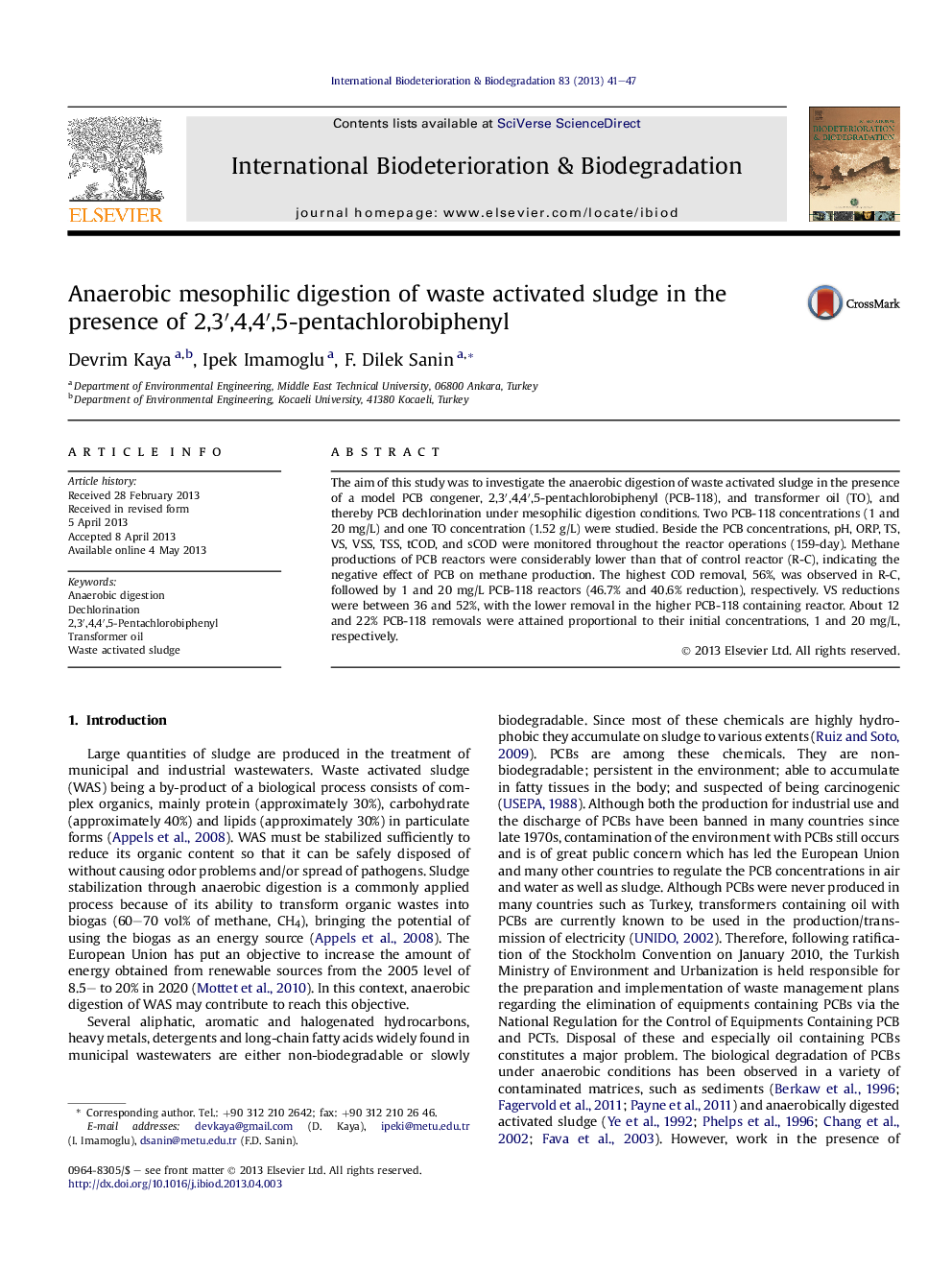| Article ID | Journal | Published Year | Pages | File Type |
|---|---|---|---|---|
| 4364880 | International Biodeterioration & Biodegradation | 2013 | 7 Pages |
•Anaerobic digestion of WAS containing PCB-118 and transformer oil was investigated.•Digester performances were negatively affected by the presence of PCBs.•Increase in PCB dose reduced CH4 production, but favored PCB dechlorination.•WAS degradation with low dose of PCB-118 and transformer oil was possible.
The aim of this study was to investigate the anaerobic digestion of waste activated sludge in the presence of a model PCB congener, 2,3′,4,4′,5-pentachlorobiphenyl (PCB-118), and transformer oil (TO), and thereby PCB dechlorination under mesophilic digestion conditions. Two PCB-118 concentrations (1 and 20 mg/L) and one TO concentration (1.52 g/L) were studied. Beside the PCB concentrations, pH, ORP, TS, VS, VSS, TSS, tCOD, and sCOD were monitored throughout the reactor operations (159-day). Methane productions of PCB reactors were considerably lower than that of control reactor (R-C), indicating the negative effect of PCB on methane production. The highest COD removal, 56%, was observed in R-C, followed by 1 and 20 mg/L PCB-118 reactors (46.7% and 40.6% reduction), respectively. VS reductions were between 36 and 52%, with the lower removal in the higher PCB-118 containing reactor. About 12 and 22% PCB-118 removals were attained proportional to their initial concentrations, 1 and 20 mg/L, respectively.
